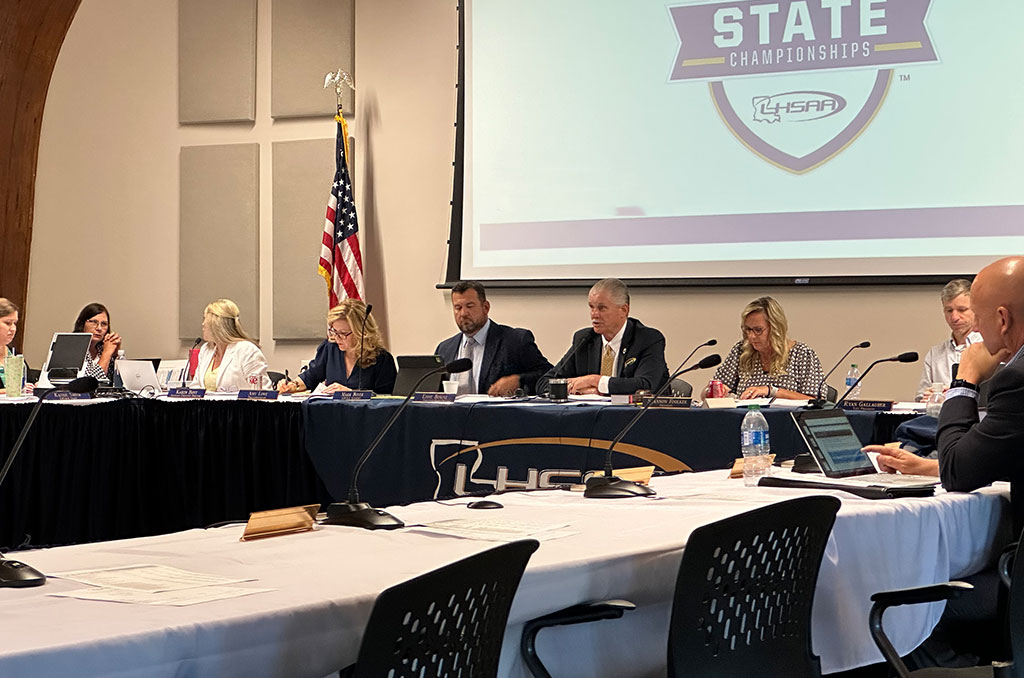
COLUMN: The Human Impact of the LHSAA Lawsuit Over ‘Select’ Situation
by Hunter Bower // GeauxPreps.com Owner
As a new high school season approaches, the Louisiana sports community finds itself entangled in a web of legal intricacies.
Nine schools, including those from Rapides Parish and Monroe, have banded together to challenge the Louisiana High School Athletic Association (LHSAA) in court, seeking to overturn the current select/non-select playoff format. The heart of the matter, however, lies in the definition of the term “select” and the authority to change it.
At its core, this issue revolves around the definition of “select” schools and whether LHSAA executive director Eddie Bonine had the authority to revise it. The changes made to the definition have sparked heated debates, with a group of principals arguing that the move is unconstitutional and that the membership should have the final say in such decisions.
Behind the lawsuit’s legal jargon and constitutional arguments are the hopes and dreams of thousands of student-athletes. High school sports provide a platform for young talents to showcase their skills, build character, and learn vital life lessons. However, when such legal disputes arise, the focus often shifts away from these aspiring athletes, and their opportunities might be inadvertently impacted.
Baton Rouge attorney Brian Blackwell, representing the nine schools, stresses that the glossary terms, including “select” and “non-select,” are fundamental components of the LHSAA constitution. Blackwell believes that any changes should follow a two-thirds vote by member schools, advocating for adherence to the association’s established processes. This brings to the forefront questions of accountability and transparency, as schools seek assurance that their voices are heard and respected.
On the other side of the courtroom, LHSAA attorney Mark Boyer insists that the changes were made through due process and proper deliberation by the executive committee. According to Boyer, the proposed changes were made available to all member schools, with opportunities for discussion and input. This underscores the importance of proactive participation from all schools, as decisions affecting the entire association require collective engagement.
Amidst these legal proceedings, it’s crucial to recognize that the LHSAA has taken several initiatives to educate its membership about the changes that were implemented last year.
The issue of “select” schools and the playoff systems goes beyond just semantics; it is about fairness, equity, and the fundamental values of high school sports. The changes to the definition of “select” schools were intended to address longstanding concerns about balancing the playing field. Before the change, certain schools were taking advantage of the existing definition, which excluded charter schools, magnet programs, and others that could draw students from outside of their home attendance zones.
These schools were gaining an unfair advantage, similar to the practices accused against private schools, leading to an uneven and lopsided competition.
While the actual playoff format, creating smaller divisions, is not the sole reason for the legal action, it has certainly been part of the opposition’s narrative as well. The shift in playoff systems was designed to create a more competitive postseason landscape, ensuring that only the most deserving teams advanced. By reducing the number of one or two-win teams advancing and emphasizing close-margin victories, the LHSAA sought to elevate the level of competition and make every game count.
As we approach the start of the 2023-2024 LHSAA sports season, the uncertainty arising from this lawsuit threatens to cast a shadow over the excitement and spirit of the game. High school sports are meant to foster camaraderie, teamwork, and lifelong friendships among student-athletes. A prolonged legal battle might inadvertently dilute these values.
Rather than rushing to the courthouse, let us encourage open dialogue and empathetic conversations. By understanding the concerns of the schools, acknowledging the efforts of the LHSAA to educate its members, and finding common ground, we can foster an environment where young athletes can thrive.
The pursuit of fair play should always transcend legal battles. Let us remember the human faces behind the jerseys, the families cheering from the stands, and the communities united by their love for the game.
Together, with patience and empathy, we can work towards a more inclusive and equitable landscape for high school sports in Louisiana.
Schools listed as plaintiffs in the suit include (alphabetical):
Buckeye High School
Carroll High School
Glenmora High School
Neville High School
Northwood (Lena) High School
Plainview High School
Rapides High School
Tioga High School
Wossman High School
